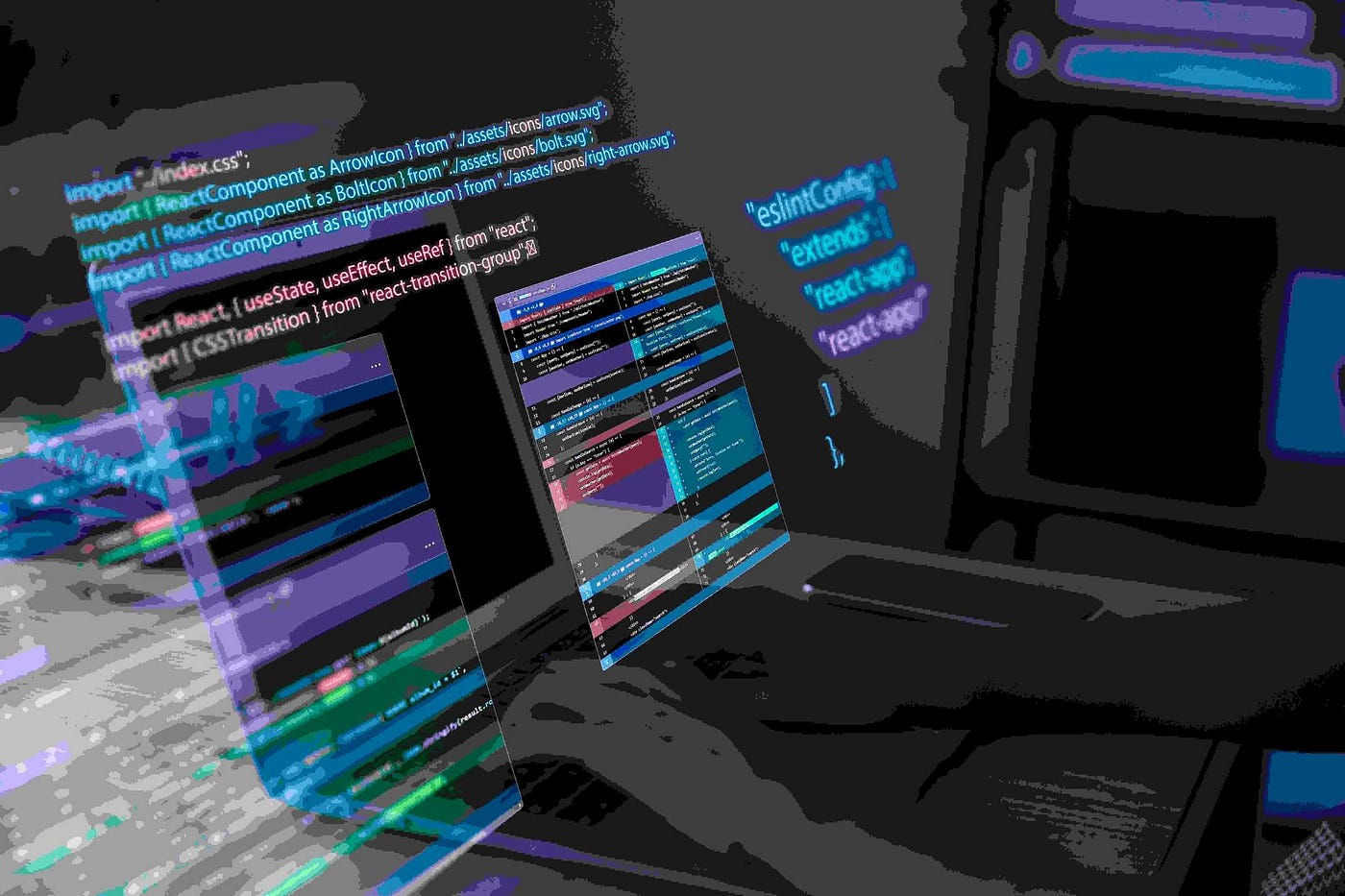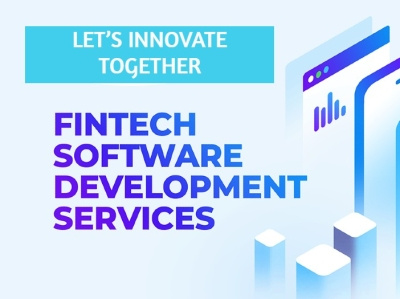Fintech software development involves creating customized solutions for automated financial service delivery using advanced technologies such as AI/ML, big data, blockchain, and IoT. These solutions transform BFSI workflows and provide engaging customer experiences.
Today, financial services are being transformed through the use of technology, and fintech software development is playing a crucial role in this transformation. Fintech companies are leveraging the latest technologies to develop advanced solutions that can revolutionize banking services. These solutions are aimed at providing customized services that cater to unique business requirements, thereby improving efficiency, reducing costs, and enhancing the overall customer experience.
We will delve into what fintech software development is, the technologies and software used, the skills required to become a fintech software engineer, and the roles of programmers in fintech.
What Is Fintech Software Development?
Fintech Software Development involves the creation of customized solutions for automated financial services. Utilizing advanced technologies such as AI/ML, blockchain, and big data, companies in the BFSI sector are introducing new workflows, transforming processes, and offering engaging customer experiences.
traversing the unchartered waters of finance and technology, working to solve complex problems in the financial industry while harnessing the power of technology. Fintech software development involves the creation of secure and robust software that automates financial services, delivering fast and efficient solutions for time-intensive financial tasks in the banking, finance, and insurance sectors. In this blog post, we will explore Fintech software development and how it’s transforming BFSI workflows, introducing engaging customer experiences.
Overview Of Fintech Software
Fintech software development is the process of creating cutting-edge software solutions for the financial sector. Fintech software aims to enhance the traditional financial industry by using advanced technologies such as big data, AI/ML, blockchain, and IoT. This software targets specific financial problems and streamlines specific workflows, automating the processes to ensure fast and efficient financial services.
Transforming Bfsi Workflows
Fintech software has revolutionized the banking, finance, and insurance sectors by automating financial processes, reducing manual intervention, and providing swift verification and approvals. Traditional banking and financial institutions usually suffer from bureaucratic and lengthy procedures, but Fintech software development has transformed BFSI workflows by offering customers fast and efficient services. Fintech software also allows financial institutions such as banks to reduce operational costs by optimizing their workflow processes.
Engaging Customer Experience
Fintech software development has introduced engaging customer experiences unparalleled in the financial sector. These software solutions provide customers with self-service options and personalized financial management tools, such as mobile banking and investment apps. With Fintech software, customers can enjoy hassle-free banking and financial services that are both swift and secure. Fintech software development has created customer-focused solutions that have raised the bar in customer experience in the financial industry. In conclusion, Fintech software development has transformed the financial industry by offering tailored and easy-to-evolve solutions for automated financial service delivery. By using advanced technologies such as big data, AI/ML, blockchain, and IoT, Fintech software development has streamlined BFSI workflows, reduced operational costs and introduced engaging customer experiences. As a result, Fintech software development is now the cornerstone of the financial industry, revolutionizing the industry in unprecedented ways.

Credit: medium.com
Top Companies In Fintech Software Development
Discover the top companies in Fintech software development for tailored and easy-to-evolve solutions for automated financial service delivery. These companies, such as N-iX, MojoTech, and Saritasa, rely on advanced technologies like AI/ML, big data, and blockchain, to transform BFSI workflows and create engaging customer experiences.
Top Companies in Fintech Software Development When it comes to fintech software development, there are numerous companies out there offering innovative solutions that cater to the ever-evolving requirements of the Fintech industry. In this article, we will discuss the top companies in Fintech software development and their contributions to this rapidly growing sector. H3: Stripe, Inc. Stripe, Inc. is an American technology company that offers a suite of payment APIs that make it easy to process payments online. They provide end-to-end processing for internet businesses, from accepting payments to managing subscriptions. Stripe’s platform allows businesses to accept payments from anywhere in the world, and their advanced machine learning algorithms make it easy to detect fraud and reduce chargebacks. H3: Robinhood Robinhood is a commission-free trading platform that allows users to invest in stocks, ETFs, cryptocurrencies, and options markets. They offer a simple and easy-to-use trading app that makes trading accessible to everyone. Robinhood also offers high-yield savings accounts and debit cards, making it a popular choice among younger investors. H3: Revolut Revolut is a UK-based fintech startup that provides mobile banking, card payments, currency exchange, and remittance services. They offer a range of features such as instant money transfers, spending analytics, and cashback rewards. Revolut has gained popularity in Europe with its digital-only banking model and extensive range of services. H3: Fiserv Fiserv is a leading provider of technology solutions for the financial services industry. They offer a wide range of products and services, including payment processing, lending and risk management, customer and channel management, and digital banking. Fiserv is known for its innovative use of AI/ML to improve real-time decision-making and reduce operational costs. H3: Plaid Inc. Plaid Inc. is a US-based fintech company that focuses on building infrastructure for financial institutions. They enable businesses to connect with user bank accounts and access financial data in a secure and easy-to-use way. Plaid’s platform serves as a connectivity layer between banks and fintech apps, making it easier for users to manage their finances. H3: PayPal PayPal is a US-based fintech company that provides online payment solutions to businesses and individuals. They offer a range of products, including payment processing, invoicing, and merchant services. PayPal’s platform is used by millions of businesses around the world and is known for its ease of use and streamlined payment processing. Conclusion With the evolution of fintech, these top companies in Fintech software development have proven their mettle by offering innovative services that have transformed the way we transact. From payment processing to banking and trading, these companies are at the forefront of the fintech revolution. Their advanced techs such as AI/ML, blockchain, big data, and IoT, continue to revolutionize the BFSI industry and redefine customer experiences.
Technologies Used In Fintech Software
HTML response:
Fintech software development services result in tailored and easy-to-evolve solutions for automated financial service delivery. Fintech solutions often rely on advanced technologies such as AI/ML, big data, blockchain, IoT.
Blockchain
Blockchain is widely used for various fintech applications, including digital currencies, smart contracts, identity verification, and supply chain management. It offers transparency, decentralization, immutability, and security, making financial transactions safe and secure.
Ai/ml
AI/ML and predictive analytics are frequently used to detect fraudulent activities quickly and efficiently. These technologies help automate the routine tasks associated with traditional banking, along with providing personalized customer experiences. With AI/ML, fintech companies can also offer customized investment recommendations to their clients based on their investing objectives.
Big Data
With the enormous growth of fintech software, it has become difficult to handle complex data and transactions manually. Big data tools allow fintech companies to collect, process, and manage large amounts of data and derive valuable insights to optimize their operations. The combination of big data and AI/ML enables financial institutions to make better decisions based on data patterns and trends across multiple sources.
Iot
Iot is widely used in fintech software development because it facilitates intelligent decision-making and provides real-time financial data. It enhances user experiences and simplifies transactions by allowing users to access financial data using their wearable devices, smartphones, or other smart devices. IoT also enables financial institutions to monitor their internal operations, track their assets, and identify vulnerabilities or inefficiencies in their systems.
In conclusion, the technologies used in fintech software development are varied, but each one contributes to improving the overall efficiency and security of financial services. Fintech software development is continually evolving, and companies that invest in these technologies can stay ahead of their competition and offer unique and engaging customer experiences.
Skills Needed For Fintech Software Engineering
To become a fintech software engineer, one must possess skills in basic and advanced computer operation, proficient programming languages, and continuous self-improvement. Fintech software development involves advanced technologies such as AI/ML, blockchain, and IoT to produce customer-centric financial solutions.
Skills Needed for Fintech Software Engineering In today’s digital world, fintech software development has become an integral part of the financial services industry. Fintech software development services are highly sought after by companies looking to automate their financial service delivery. Financial software engineers are in high demand, and can significantly contribute to the growth and success of the business. However, it’s important to remember that not everyone can be a fintech software engineer. It requires a specific skill set and expertise that is unique to this industry. Computer Skills To become a fintech software engineer, you need to have both basic and advanced computer skills. You should be well-versed in different operating systems and software programs, as well as have a deep understanding of networking and computer architecture. Being familiar with cloud computing and other new technologies is equally important, as that helps in building effective fintech software applications. Programming Languages One of the most important skills that a fintech software engineer should possess is mastery of at least one programming language. It is essential to have a solid foundation in programming languages such as Python, Java, or C++, as they are used extensively in developing fintech software applications. Additionally, fintech software engineers should be able to write clean, concise, and well-documented code. Self-Development Skills In order to keep up with the fast-paced fintech industry, it is important to have strong self-development skills. Fintech software engineers should always be interested in learning new technologies and advancements in the industry. They should constantly seek new information and stay updated with the latest trends, tools and methodologies. This ensures that they can offer clients cutting-edge solutions that meet their specific needs. In conclusion, the fintech industry is constantly evolving and requires skilled professionals to keep pace with its demands. Companies need fintech software engineers with deep knowledge and expertise in computer skills, programming languages, and self-development skills, to help them navigate the complex landscape of financial services. Therefore, mastering the skills that are essential for fintech software engineering requires aspirants to stay up-to-date and continually improve their skill set.
Process Of Developing Fintech Software
Fintech software development involves using advanced technologies like AI/ML, big data, blockchain, and IoT to deliver automated financial services. Custom fintech solutions offer flexible and personalized experiences that can be easily upgraded over time to meet changing customer needs. Programming fintech software requires advanced computer skills and proficiency with programming languages.
Process of Developing Fintech Software Fintech software development is the process of designing, creating, and implementing innovative software solutions for financial services providers. This process involves the application of cutting-edge technologies like artificial intelligence, machine learning, blockchain, IoT, and big data to create solutions that revolutionize the way the financial industry operates. The development of fintech software involves several stages, each of which is crucial to the success of the project. Conducting Market Research – H3 The first stage in the development of fintech software is conducting market research. This involves analyzing the market to identify the needs and pain points of customers and financial service providers. The research process involves gathering data from a variety of sources, including surveys, field interviews, and focus group discussions. This information is used to gain insights into consumer behavior and preferences, which are then used to inform the design of the solution. Defining Project Goals – H3 The second stage in the process of developing fintech software is defining project goals. This involves setting clear objectives for the project and establishing key performance indicators (KPIs) for measuring success. The project goals should be aligned with the needs of the target audience and the business objectives of the financial services provider. Brainstorming Ideas – H3 The third stage in the process of developing fintech software is brainstorming ideas. This involves generating creative ideas and exploring different approaches to solving the problem. During this stage, the project team may engage in brainstorming sessions, ideation workshops, and design thinking exercises to generate new ideas and solutions. The ideas are then evaluated based on their feasibility, potential impact, and alignment with project goals. Creating a Prototype – H3 The fourth stage of the process involves creating a prototype of the fintech solution. A prototype is a working model of the solution that allows the project team to test and refine the design. The prototype enables the team to validate the solution’s design and functionality and identify any potential issues that need to be addressed. Testing and Revisions – H3 The fifth stage in the process of developing fintech software is testing and revisions. During this stage, the team tests the solution in a controlled environment to identify any defects and make the necessary revisions. The solution is then tested again to ensure its effectiveness and efficiency. Deployment and Maintenance – H3 The final stage in the process of developing fintech software is deployment and maintenance. This involves launching the solution to the market and providing ongoing support to ensure its continued effectiveness and relevance. The fintech solution needs to be continuously updated and improved to keep up with evolving customer needs and technological advancements. Conclusion The process of developing fintech software involves several stages, each of which is critical to the success of the project. From conducting market research to deployment and maintenance, every stage is designed to ensure the solution meets the needs of the target audience and delivers the desired business outcomes. With a focus on innovation, creativity, and customer satisfaction, fintech software development continues to transform the financial services industry, providing easier access to financial services and fostering financial inclusion.
Benefits Of Fintech Software Development
Fintech software development provides tailor-made, automated financial service delivery solutions based on advanced technologies. These solutions can transform traditional BFSI workflows and provide engaging customer experiences, leveraging AI/ML, big data, blockchain, IoT, and other technologies.
Benefits of Fintech Software Development In recent years, the world of finance has been transformed by Fintech software development. The benefits of Fintech software development are clear, with tailored and easy-to-evolve solutions for automated financial service delivery. These solutions allow financial service providers to offer their customers engaging and hassle-free experiences while streamlining internal workflows, reducing operational costs, and increasing overall efficiency. Let’s delve deeper into this topic and explore the many benefits of Fintech software development. Tailored and easy-to-evolve solutions for automated financial service delivery Fintech solutions are tailored to meet the specific needs of the financial service provider, with easy-to-evolve software that can be modified as those needs change. This flexibility enables financial service providers to quickly adapt to market changes, regulatory requirements, and customer feedback. The automation of financial service delivery also results in enhanced security, accuracy, and speed, providing customers with exceptional experiences. Fintech software development companies like ScienceSoft and MojoTech offer custom software development solutions to meet specific client needs. Ensuring Compliance and Reducing Risk with Fintech Software Development Fintech software development companies prioritize security and compliance, reducing the risk of data breaches and ensuring the privacy of sensitive customer information. They employ sophisticated security measures such as encryption, multi-factor authentication, and continuous monitoring of network and system activity. This ensures that customer data remains secure, confidential, and compliant with regulatory requirements. ValueCoders, one of the top software development companies in the fintech industry, has experience building secure FinTech applications. Enhanced Customer Experiences with Fintech Software Development Fintech software development has revolutionized the customer experience, with seamless and engaging interfaces that simplify financial transactions. These interfaces are user-friendly and intuitive, making them ideal for non-technical users. Fintech solutions also offer real-time data accessibility and analytics, giving customers instant insights into their finances. Fintech companies like Robinhood and Revolut offer user-friendly interfaces and engaging customer experiences with their fintech products. In conclusion, Fintech software development offers tailored and easy-to-evolve solutions for automated financial service delivery, ensuring compliance and reducing risk, and enhancing the overall customer experience. With the use of advanced technologies like AI/ML, big data, blockchain, and IoT, financial service providers can streamline their workflows and offer their customers exceptional experiences. The benefits of Fintech software development go far beyond improving internal workflows, reducing costs, and increasing efficiency, but ultimately improve customer satisfaction and loyalty.
Different Options For Fintech Software Development
Fintech software development offers various options for creating custom and innovative solutions for the financial industry. It involves using advanced technologies such as AI/ML, big data, blockchain, and IoT to digitize financial service workflows and provide better customer experiences. Partnering with a reliable Fintech software development company can help businesses meet their needs and boost their growth.
Different Options for Fintech Software Development When it comes to Fintech software development, there are different options to choose from. These options include outsourcing, offshore development, and in-house development. Each option has its advantages and disadvantages, and a company needs to weigh these factors before choosing the best option for their business. Outsourcing One option for Fintech software development is outsourcing. Outsourcing allows a company to hire a third-party company to handle their software development needs. This option can be cost-effective as it eliminates the need to hire and train internal staff, which can be more expensive in the long run. Offshore Development Offshore development is another option for Fintech software development. Offshore development involves hiring a company overseas to handle a company’s software development needs. This option can be cost-effective, but there may be some challenges that come with working with a remote team, including communication barriers and time-zone differences. In-House Development In-house development is the final option for Fintech software development. In-house development involves hiring an internal team to handle a company’s software development needs. While this option may be more expensive upfront, it can provide more control and flexibility over the development process. When it comes to choosing the best option for Fintech software development, a company needs to consider their budget, timeline, and specific development needs. Whether a company decides to outsource, go offshore, or develop in-house, it’s important to work with a team of experts who have experience in Fintech software development and can deliver high-quality solutions. Criteria for Selection When selecting a company for Fintech software development, there are several criteria to consider. The top companies usually have a proven track record of delivering high-quality solutions on time and within budget. Some of the other things to consider when selecting a company for Fintech software development include their experience, technical expertise, and their ability to work with your team. Conclusion In conclusion, Fintech software development is essential for companies looking to deliver automated financial services effectively. Companies have different options to choose from when it comes to Fintech software development, including outsourcing, offshore development, and in-house development. Regardless of which option a company chooses, it’s crucial to work with a team of experts with experience working in Fintech software development.

Credit: dribbble.com
Becoming A Fintech App Developer
Developing fintech apps requires expertise in advanced technologies such as AI/ML, big data, blockchain, and IoT to transform workflows and introduce engaging customer experiences in the banking and financial industry. As a fintech software engineer, you must have extensive programming skills and keep up with fast-changing trends to develop easy-to-evolve solutions that automate financial services.
Becoming a Fintech App Developer In today’s world, the financial industry has witnessed a significant shift towards digitalization. To meet growing demand, Fintech software development has become a fast-paced and lucrative career option for aspiring developers. Developing Fintech apps requires a unique set of skills and knowledge, and this article provides guidance on how to become a Fintech App Developer. Education and Training The first step to becoming a Fintech App Developer is education and training. A bachelor’s degree in Computer Science, Information Technology or any related field is a suitable starting point. A relevant degree equips one with the necessary fundamental knowledge of computer science and programming, which is essential in building Fintech software applications. Learning Programming Languages The next step is to learn programming languages. A Fintech App Developer must be proficient in at least one programming language such as Java, Python, or Ruby. A developer must also be experienced in using databases, software development frameworks, and APIs. It’s vital to maintain continuous learning to keep up with emerging technologies and industry trends. Acquiring Self-Development Skills Finally, a Fintech App Developer must acquire self-development skills, which are necessary to keep up with the ever-changing Fintech industry’s advancements. Fintech App Developers should remain current in technological advancements and keep abreast of financial industry changes. The best Fintech App Developers are self-starters, highly driven, and continuously pushing themselves to evolve and improve. In conclusion, becoming a Fintech App Developer is a challenging but rewarding career choice. It requires an investment in consistent education, learning programming languages, and acquiring self-development skills. The growing demand for Fintech applications is expected to increase, making it an excellent career choice with a great future ahead.
:max_bytes(150000):strip_icc()/FinancialTechnology_Final_4196400-3a7fb7e98adf4370b6e493034ade80bd.jpg)
Credit: www.investopedia.com
Frequently Asked Questions For Fintech Software Development
What Is Fintech Software Development?
Fintech software development delivers customized and easily adaptable solutions for automated financial service delivery. It utilizes advanced technologies such as AI/ML, big data, blockchain, IoT to revolutionize BFSI workflows and enhance customer experiences. Blockchain is a popular technology used in fintech for digital currencies, smart contracts, identity verification, and supply chain management.
Financial software engineers need computer skills, programming language knowledge, and self-development skills to work in fintech.
What Software Is Used In Fintech?
Fintech software development uses advanced technologies like AI/ML, big data, blockchain, IoT, etc. To revolutionize BFSI workflows and create captivating customer experiences. Blockchain is widely used for various fintech applications like digital currencies, smart contracts, identity verification, and supply chain management.
Fintech programmers must have basic and advanced computer skills, programming languages, and self-development skills as they work with new AI and machine learning systems, big data, cloud deployments, and even blockchain technology.
How Do I Become A Fintech Software Engineer?
To become a fintech software engineer, you need computer skills, knowledge of programming languages, and the ability to stay up-to-date with rapidly-changing trends in the industry. Fintech software developers work with AI, machine learning, big data, cloud deployments, and even blockchain technology.
It is important to have a deep understanding of advanced technologies such as AI/ML, big data, blockchain, IoT, etc. , to transform BFSI workflows and introduce engaging customer experiences.
What Do Programmers Do In Fintech?
In fintech, programmers develop automated financial service delivery solutions using advanced technologies like AI/ML, big data, blockchain, and IoT. Fintech developers utilize new frameworks and toolchains to be at the cutting edge of technology.
Conclusion
Fintech software development has revolutionized the financial industry by providing customers with easy-to-use, tailored financial solutions. With the help of advanced technologies such as AI/ML, big data, blockchain, and IoT, companies can now offer engaging customer experiences. Fintech developers need to be constantly aware of new toolchains and frameworks, evaluated against their existing infrastructure’s performance.
As the financial landscape continues to shift towards tech-driven solutions, businesses must keep up with the latest fintech trends to stay ahead. Partnering with a reliable fintech software development company can help businesses achieve their goals and grow in the digital world.



